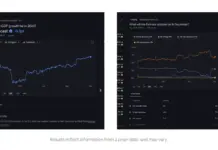Roland Landers, CEO of All India Gaming Federation (AIGF), has highlighted the potential impact of Google’s decision to pause plans for the Real Money Games (RMG) framework of its Play Store, as a potential breach of anti competitive rules.
Developers were informed that the Play Store’s RMG framework would be expanded to allow RMG apps to be distributed in the markets of India, Mexico, and Brazil, depending on meeting ‘user safety criteria’.
However, it has caused backlash from the sector and specifically the AIGF, with Landers emphasising that the group is looking forward to working with the ‘broader Indian startup ecosystem and engaging with the Government on this issue’.
Issuing a statement, Landers added: “AIGF has always advocated for a fair and open market that provides equitable opportunities for everyone. In this market, consumers decide who wins and who loses, not private entities, and we will continue to fight for the same.
“We are highly disappointed by Google’s arbitrary and anti-competitive decision, primarily affecting pay to play games’ smaller developers and distributors. As the oldest and largest representative body of online gaming in India, we were the first to welcome Google’s progressive pilot program to allow Pay to Play skill games on the Play Store.
“While we were initially concerned about Google’s decision to limit the pilot to certain games, we understood that, as an early initiative, it would eventually be expanded to include all Pay to Play skill games.”
He did go on to credit Google and the engagement the tech giant has pursued when it comes to the broader industry, having earlier in the year announced ‘they would onboard all skill based Pay to Play skill games’.
“Given that the Google Play Store conservatively holds 90% of the app distribution market, it exerts tremendous control over the Indian mobile market and is a ‘must-have’.
“In this context, not having an inclusive policy and discriminating are forms of gatekeeping and market distortion. A private entity’s disregard for Indian law, encouragement of anti-competitive practices and limitation of user choice are alarming. Their decision grants them unchecked control to pick winners in the market, favouring large companies and preventing small and emerging startups from effectively competing in this sector.”











